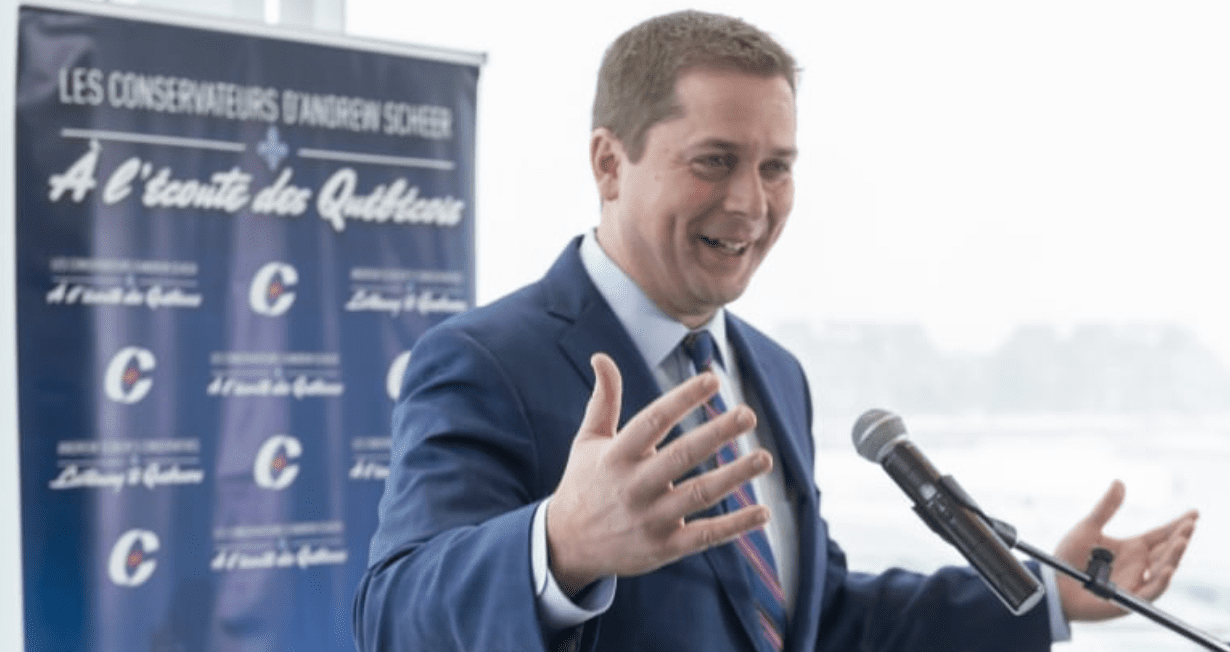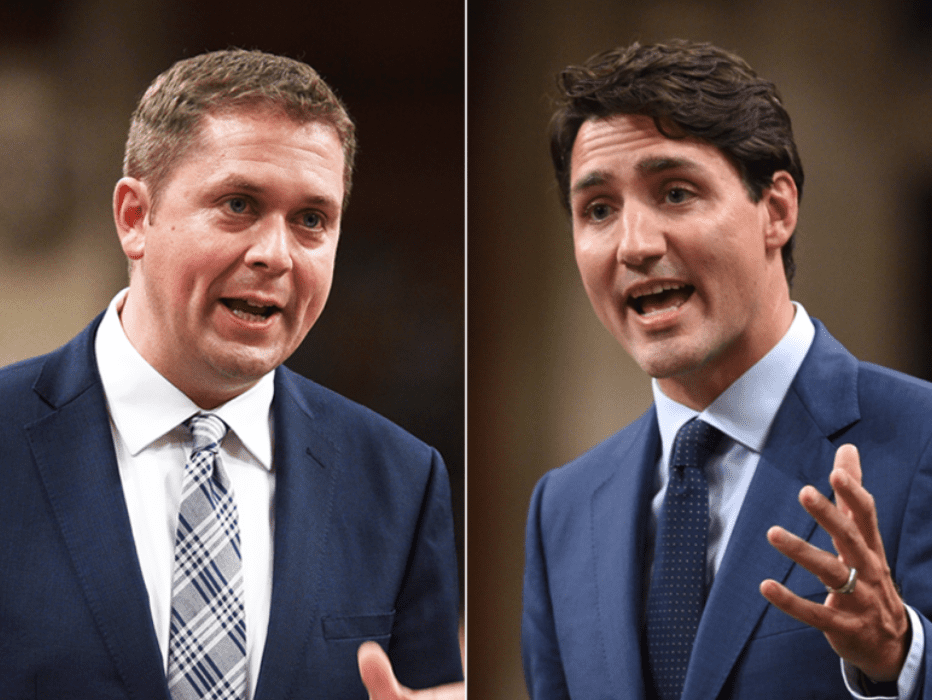Aaaaaaaaand we're back. While I visited friends and family in Ontario and Manitoba, and the Toronto Raptors strained nerves from coast to coast, Conservative Leader Andrew Scheer talked some more, delivering the fourth and fifth of his "My Vision for Canada" keynote speech series.
Having already covered his plans for foreign policy, the economy, and immigration, we will next cover his speech on "A Closer and Freer Federation," delivered last week in Alberta. With Prime Minister Justin Trudeau questioning the commitment of Canada's premiers to national unity, Scheer does not have to do much work on this front to look like a healthy alternative. But let's humor the man and see what his ideas are.
Interjurisdictional funding: Scheer promises to eliminate this "one-size-fits-all" model of service delivery by empowering provincial and municipal governments to decide how money for programs within their jurisdiction should be spent. If this means an end to Economic Action Plans in which the feds allocate "infrastructure" funding based on which project offers the best photo opportunity, I am all in.
Quebec: Have we all just accepted that Quebec deserves the "special status" that Scheer promises to protect? Because continuing to treat the population of one province as a "nation within Canada" doesn't seem very conducive to national unity.
A coast-to-coast energy corridor: He is so proud of this that he mentioned it in two speeches. He really thinks it can happen. Sometimes I just want to pat him on the head and give him a lollipop.
Interprovincial trade: He'll appoint a new minister for it. He'll also convene a First Ministers meeting with the goal of dismantling all remaining trade barriers. But despite quoting Section 121 of the Constitution Act directly, he will not assert the federal authority it provides to destroy those barriers in one shot. He should know by now that anything less is wasting his breath.
Scheer wrapped up his tour yesterday with a long-awaited address on the environment. If anyone expected him to dismiss climate change as the paranoia of unbathed hippies, he does not. For that, we turn to People's Party of Canada leader Maxime Bernier, who pledges to do a whole lot of nothing, unless it's caused by "natural climate change," and maybe tackle pollution if they have a minute. He calls that plan "Rejecting Alarmism and Focusing on Concrete Improvements." I call it "This Is Fine."
Anyway, back to Scheer:
The Paris Agreement: He'd stick to the targets it sets forth, which may not please his base.
Emissions standards: "Major emitters" companies that emit more than 40 kilotons of carbon dioxide annually would be required to invest a set amount per extra tonne into emissions-reduction technology relevant to their respective industry. This plan would allow Conservatives to claim both less impact on Canadian households and more impact in total. Politically, it's quite canny. But will it substantially reduce emissions? How will those technological investments be overseen? We may have to defer to an expert or two to judge that.
Green Homes Tax Credit/Green Patent Credit: Of course. Of bloody course.
"A single online hub for green technology innovators": The Canadian government can't even create a single online hub for its employees' pay.
Transportation efficiency: Scheer will "consult with our industry partners" to identify ways to make trucking less carbon-intensive. "Consult with our industry partners" is usually code for "We don't know what we're doing yet."
Smart grid technology for remote communities: That sounds pretty good, as long as he understands that if he pulls this off, he'll be expected to pull off fixing their plumbing as well.
Indigenous relations: He'll have them. He'll even "incorporate their traditional knowledge" into new climate change efforts. All of which sounds good when his goals and theirs are aligned, which he'll know from ongoing pipeline disputes will not always be the case.
Conservation: He'll tackle invasive species, ensure "proper management" of protected areas, review air quality standards, restore previously cancelled conservation programs for wetlands and fisheries, enforce existing environmental laws, and re-establish an advisory panel for hunters and anglers. Much of this amounts to what would be expected of the federal government already. The last bit is just a nod to people who are probably going to vote Conservative anyway.
Plastic waste: He'll work with producers, other governments, and other countries to reduce it. (Sidebar: Apparently it's really, really easy to impress Conservative MP Michelle Rempel by making fun of Trudeau's response to the plastic waste question. Even if "satirical" Twitter clips aren't in Scheer's plan, expect more of those.)
Oceans: He'll work to reduce the interference of marine shipping on sea life using "real-time data." Here, again, he may underestimate the level of skepticism that this is possible, especially here on the West Coast, where those who care about the plight of southern resident orcas may settle for nothing less than the tanker ban he opposes. But at least he's acknowledging the concern.
So, what can we conclude from Scheer's speeches? If they existed in a vacuum, nobody would think of him as the non-unionized Canadian Donald Trump equivalent that some people would like us to believe he is. Unfortunately, only nerds like me will ever read or hear a word of these speeches. He will be judged, as the Opposition Leader always is, by two things: how Canadians feel about the incumbent, and how Canadians feel about the non-incumbent's headlines.
Photo Credit: CBC News
Written by Jess Morgan








